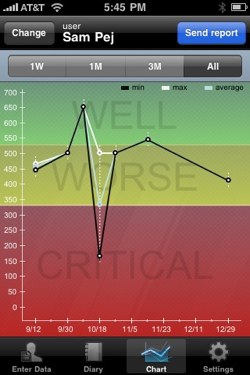 A new feature story in the Economist takes the pulse of wireless healthcare with an article titled: "Wireless health care: When your carpet calls your doctor." The reference is to the sensors-laced "magic carpet" that Intel has invested in for fall prevention among the elderly population. The article launches into the subject with an interesting lead:
A new feature story in the Economist takes the pulse of wireless healthcare with an article titled: "Wireless health care: When your carpet calls your doctor." The reference is to the sensors-laced "magic carpet" that Intel has invested in for fall prevention among the elderly population. The article launches into the subject with an interesting lead:
"Pundits have long predicted that advances in genetics will usher in a golden age of individually tailored therapies. But in fact it is much lower-tech wireless devices and internet-based health software that are precipitating the mass customization of health care, and creating entirely new business models in the process."
It closes with another jab at personal genetics:
"Doctors and nurses are not always on hand to encourage healthy behaviour, but mobile phones and other wireless gadgets can be. That is something that even personalized genetic therapies could not offer."
It's an interesting hook to pit personalized genetic therapies up again wireless health services, especially since some of the biggest proponents of wireless health also have a sincere and sustained interest in genetic therapies, too. As we have noted a number of times in the past, the two could work very well together:
Co-Founder of the West Wireless Health Institute Dr. Eric Topol told MobiHealthNews last year that thanks to “extremely ingenius" developments in wireless sensors coupled with breakthroughs in genomics, we are now able to profile the individual in an "exquisite and elegant" way. (Topol is also a leading thought leader in genomics at Scripps Health.) By way of example Topol pointed to one of the US's most pressing health issues: obesity.
"We now have uncovered the the genetic contribution to non-syndromic human obesity," Topol explained. "We now know at birth who is likely to be unequivocablly associated with the propensity to become obese.”
Genetics can help consumers understand their health risks better and could potentially help spur healthier decision making, which would include using wireless health devices and services.
Sure, your phone could call you or text you to take better care of yourself more often than the busy care providers can, but if that text included a reminder that you were genetically predisposed to obesity... wouldn't you do that extra sit-up?
Apart from the Economist's faulty dichotomy, it's a worthwhile summation of some of the high level activities going on in wireless health today. Check out the full article here.














